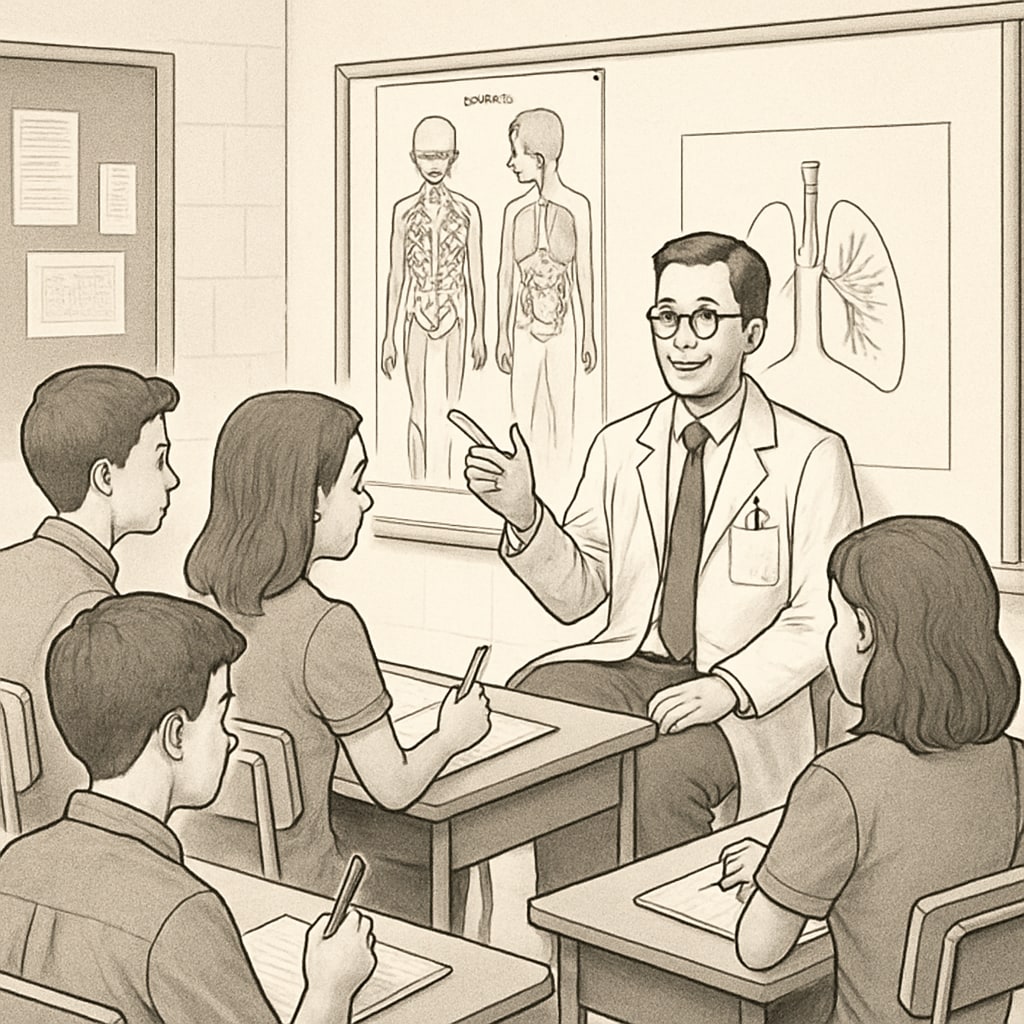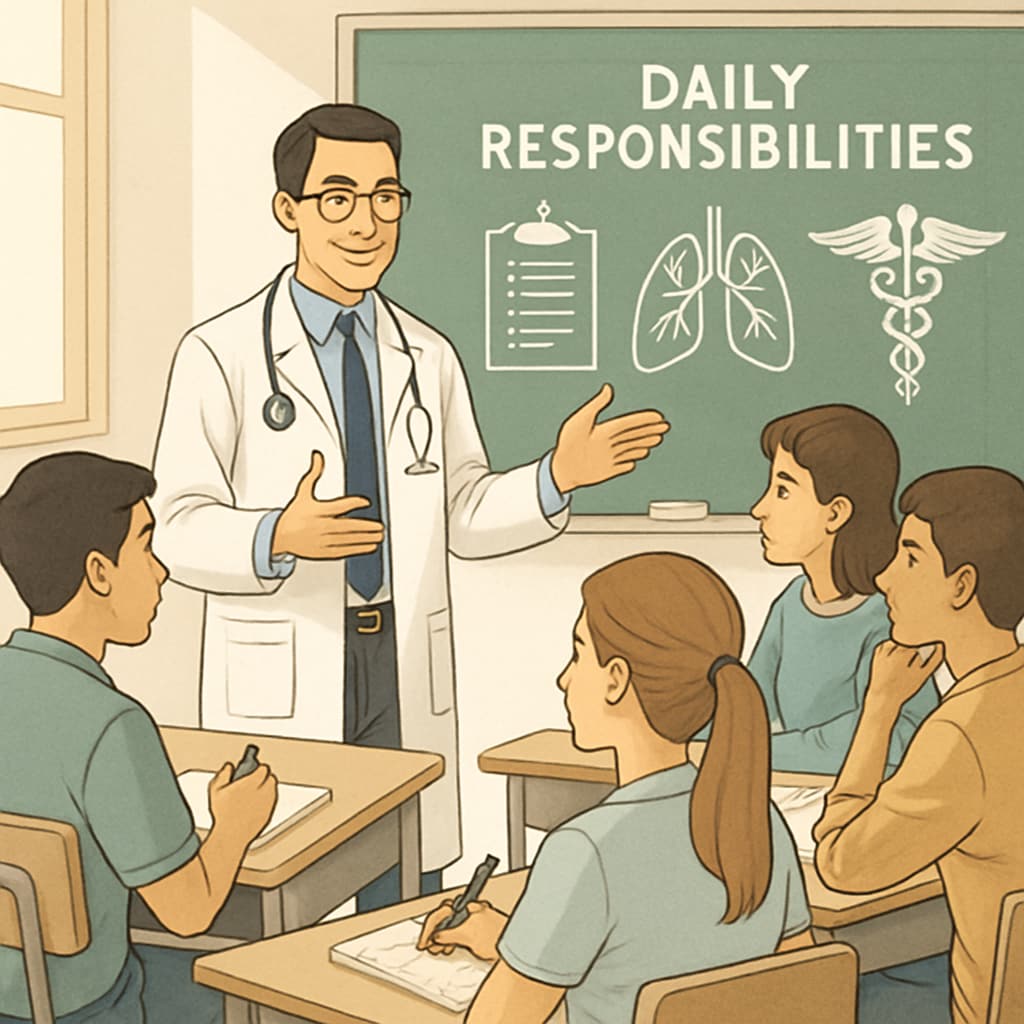Incorporating doctor interviews, school projects, and career planning into K12 education offers students an invaluable opportunity to explore medical professions. By connecting students with real-world professionals, schools empower young learners to make informed decisions about their future careers. Structured interview programs not only provide insights into the medical field but also encourage critical thinking and a deeper understanding of career paths. This article delves into the significance of such initiatives and offers strategies for effective implementation.
The Role of Career Exploration in K12 Education
Career exploration plays a vital role in helping students understand their interests, strengths, and long-term aspirations. For K12 students, this process is particularly significant as it lays the groundwork for their future academic and professional journeys. Career exploration programs provide students with exposure to various fields, enabling them to make informed decisions about their studies and eventual careers.
In the context of medical careers, interviews with healthcare professionals offer unique insights. These interactions allow students to gain an understanding of the day-to-day responsibilities, challenges, and rewards associated with a career in medicine. As a result, students are better equipped to evaluate whether this field aligns with their personal and professional goals.

Designing Effective Doctor Interview Programs
To maximize the benefits of career exploration, schools should design structured programs that facilitate meaningful interactions between students and medical professionals. Here are some key steps for creating an effective doctor interview program:
- Define Objectives: Clearly outline the goals of the program, such as helping students understand medical roles or developing their communication skills.
- Identify Professionals: Partner with local hospitals, clinics, or medical organizations to connect with doctors who are willing to share their experiences.
- Prepare Students: Teach students how to conduct interviews by providing them with sample questions and guidance on professional etiquette.
- Focus on Reflection: Encourage students to analyze their interview experiences to identify key takeaways and evaluate their interest in the medical field.
Additionally, schools can use these interviews as a springboard for further exploration. For example, students might shadow doctors, volunteer at healthcare institutions, or research medical advancements as a follow-up activity.
Benefits of Doctor Interviews for Career Planning
Structured doctor interviews offer a wide range of benefits for students. Here are some of the most significant advantages:
- Real-World Insights: Students learn about the realities of medical careers, including the challenges and rewards.
- Critical Thinking: By asking thoughtful questions and reflecting on the responses, students develop analytical and decision-making skills.
- Informed Decisions: Exposure to real-world experiences helps students determine whether a medical career aligns with their goals and values.
- Networking Opportunities: Building connections with professionals can open doors to mentorships, internships, or future collaborations.

How Schools Can Sustain These Initiatives
To ensure the long-term success of career exploration programs, schools should adopt practices that continuously engage students and professionals. Here are some recommendations:
- Build Partnerships: Maintain relationships with local hospitals, clinics, and medical schools to secure ongoing support.
- Leverage Technology: Use virtual interviews to connect students with professionals from diverse medical fields and locations.
- Promote Diversity: Highlight a range of medical specialties, from general practice to specialized fields like surgery or pediatrics.
- Evaluate and Adapt: Collect feedback from students and professionals to refine the program and address areas for improvement.
By integrating these practices, schools can create a sustainable framework for career exploration that continues to benefit students year after year.
In conclusion, implementing doctor interviews, school projects, and career planning in K12 education is a powerful way to guide students in their professional journeys. These initiatives not only provide students with valuable insights but also foster the skills necessary for making informed decisions about their futures. As a result, students are better prepared to navigate the complexities of the modern workforce and achieve their career aspirations.
Readability guidance: Use short paragraphs and lists to summarize key points; ensure smooth transitions between topics; maintain an active voice throughout the article to engage readers effectively.


